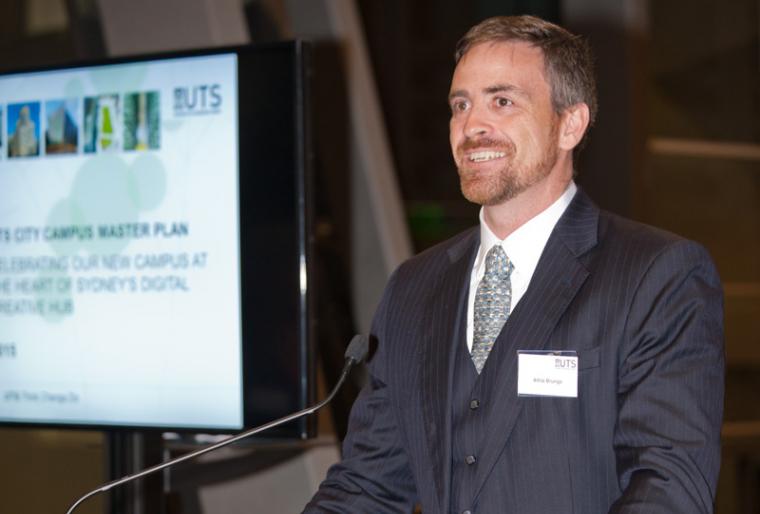While the groundswell of political support for the technology startups was encouraging, Australia would enjoy bigger opportunities if it broadened its outlook in addressing the needs of the whole of the cross-industry innovation ecosystem.
The University of Technology Sydney vice-chancellor Attila Brungs said the growing acceptance in Australia of entrepreneurialism as a legitimate career choice should be seen as the front-end to bigger change in the way we think about our industries.
“If you always do what you always do, you will get what you always got,” Prof Brungs told the InnovationAus.com policy debate as an opening to Australia’s sometimes entrenched innovation challenges as the mining boom recedes.

Prof Brungs delivered his opening remarks on innovation and digital transformation at the InnovationAus.com policy debate held in conjunction with ten industry groups, including collaboration with a cross-section of the sector’s most important industry groups including the likes of AIIA, IGEA, StartupAUS, AVCAL, the Communications Alliance,Australian Mobile Telecommunications Association, and others.
Prof Brungs provided the local context and perspective on the current state of the nation’s innovation system, and discussed the innovation challenges and opportunities in Australia.
The inaugural Election Debate sought to gather insights into the major political parties’ industry plans for the next three years and beyond, and to put some flesh on the bare bones of policy discussion that has so far occurred during this long election campaign.
Prof Brungs brought the attendees back to the basics, offering his perspective on what innovation really means and reminding us that people, not technology, is at the heart of innovation.
But while we can always find reasons to be optimistic, the challenges are substantial.
“Recent studies show that as much as 40 per cent of existing jobs will disappear due to automation, artificial intelligence and other new technologies over the next 10 to 20 years. With the dearth of the mining economy, it is crucial that we quickly facilitate the adjustment to a new economy as part of our future,” Prof Brungs said.
The government played a key role in mitigating this transition, and a strong education sector was fundamental to these efforts, he suggested.
Success in creating and sustaining a culture that centres on innovation is not a battle of political wills. No matter who takes the top seat on July 2, it is imperative that the next elected government adopt a vigorous and consistent approach in driving innovation to secure a unique competitive advantage.
“We need to think about innovation far more broadly than we currently do. There has to be a commitment to foster innovation across all sectors of the economy and a stable long-term government policy that supports this,” Prof Brungs said.
Perhaps the nation has half the battle won. Australia is blessed as it has the knowledge, infrastructure, resources and human capital that serve as a solid foundation to drive innovation. However, Prof Brungs warned, that should complacency set in, Australia would risk being left behind.
Prof Brungs pointed out that innovation is more than just research; it’s incremental and collaborative in nature and is in itself, a rather broad concept. Most importantly, what lies at the heart of innovation is people, not technology.
“It requires our people to have boundaries-crossing skills in design-thinking and problem-solving, etc. We need to rethink the skills that people need, and how they will acquire them. This will revolutionise our teaching approach,” he said.
Do you know more? Contact James Riley via Email.

